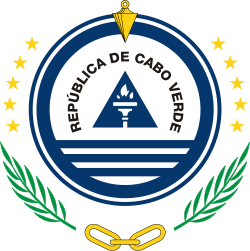6 February 2011 | |||||||||||||||||||||||||||||||||
All 72 seats in the National Assembly of Cape Verde 37 seats needed for a majority | |||||||||||||||||||||||||||||||||
|---|---|---|---|---|---|---|---|---|---|---|---|---|---|---|---|---|---|---|---|---|---|---|---|---|---|---|---|---|---|---|---|---|---|
| Registered | 298,567 | ||||||||||||||||||||||||||||||||
| Turnout | 76.01% | ||||||||||||||||||||||||||||||||
| |||||||||||||||||||||||||||||||||
 | |||||||||||||||||||||||||||||||||
| |||||||||||||||||||||||||||||||||
 |
|---|
Parliamentary elections were held Cape Verde on 6 February 2011. The result was a victory for the ruling African Party for the Independence of Cape Verde (PAICV), led by Prime Minister Jose Maria Neves, which won 38 of the 72 seats in the National Assembly. [1]



